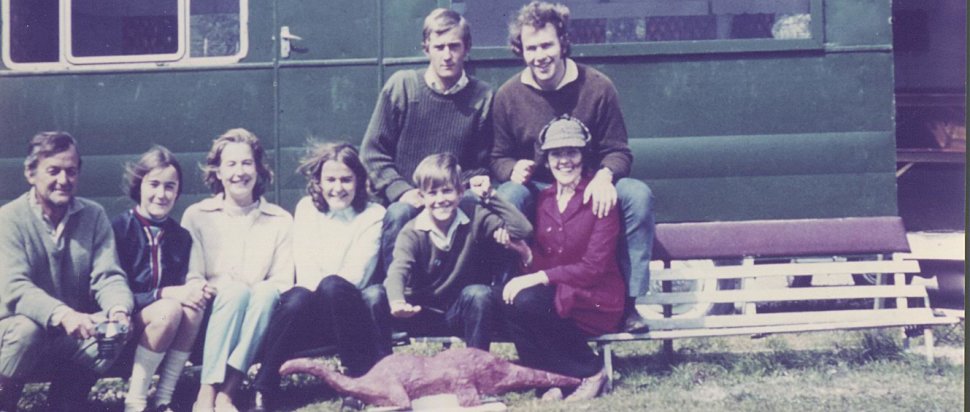The Skinny's Scottish Films of 2023
Notable feature film debuts and sparkling documentaries were the story of Scottish film in 2023
This time last year, The Skinny, along with pretty much every other right-minded arts publication, was declaring Charlotte Wells’ Aftersun as the film of the year. You’d be hard-pressed to say that any Scottish filmmaker achieved the same level of artistry in 2023, but the last 12 months have not been without success stories.
The Scottish fiction film to make the biggest splash was surely Adura Onashile’s Glasgow-set drama Girl, which had its world premiere at Sundance in January before receiving a hero’s welcome as the opening film at Glasgow Film Festival in March. It’s an imperfect but hugely promising work. Onashile’s background is in theatre but there’s nothing stagey about her instincts as a filmmaker. The script is often opaque – the spare dialogue would barely fill a couple of pages of A4 – with Onashile instead deploying expressive colour, evocative music and dreamy camerawork (all overhead shots and tight close-ups) to tell her story of the deeply intimate bond between a 24-year-old immigrant woman, Grace, and her ten-year-old daughter, Ama – a bond that’s soon to be tested by Grace’s past traumas that have left her closed off to the world, and Ama’s growing sense of self that’s pushing her beyond the confines of her mother’s loving but suffocating gaze.
Johnny Barrington’s Silent Roar was another Scottish film with an underdeveloped script elevated by the filmmaker’s startling visual sensibility. Where Onashile is concerned with the tactile intimacy between characters, Barrington's eye is for the drama and wild lyricism of landscape – specifically the coastline of the Isle of Lewis. The film is pleasingly off-kilter, resisting easy characterisation, but if I were to have a go I’d describe it as a teen surfer comedy with a cosmic flavour. It’s definitely its own thing, and just about manages to be both a horny coming-of-age film and a philosophical musing on religion and spirituality all in one – but its scrappiness can be frustrating at times. Still, it’s probably the most beautiful film from Scotland – or anywhere else in the UK for that matter – in 2023, with the magical Hebridean light and stunning 16mm photography by Ruben Woodin Dechamps making the film sing, even in its most disjointed moments.
Another film that made great use of the wildness of Scotland’s landscape is Andrew Cumming’s gnarly Out of Darkness (previously titled The Origin when it played at Glasgow Film Festival). Set in the paleolithic age, it follows a band of early humans who have made a perilous journey across the sea, only to find themselves washed up on the shores of a cold, desolate, near-primordial Scotland with no shelter nor food. And to make matters worse, there’s a mysterious threat on the mist-covered moors that’s picking off their group one by one. What makes Out of Darkness so refreshing is that it's a fat-free horror that doesn’t have highfalutin ideas above its genre station; it’s a pure thrill ride concerned with squeezing as much tension from its smart but simple setup as possible. Early reviews comparing Out of Darkness to superficially similar films like Robert Eggers’ The Witch and The Northman are off base – the existential dread of Alien or Walter Hill’s Southern Comfort are better touchstones.
As is often the case, the documentary scene in Scotland proved fruitful too. The prolific Mark Cousins was back with his sly essay film My Name Is Alfred Hitchcock. Its playful central conceit is that it’s being narrated by Hitchcock, despite the fact he died in 1980. Speaking over clips from his films, Hitchcock talks us through some of the themes and techniques that have obsessed him throughout his career. Impressionist Alistair McGowan is brilliant as the legendary director: from his laboured breathing to his snorty giggle to his rumbling belly laughs at his own mischief, McGowan has Hitch’s voice down. And the long-dead director of Vertigo and Psycho is in turn doing an uncanny Mark Cousins impression, delivering the sort of poetic and astute reading of his own work as Cousins does in films like The Story of Film and Women Make Film. Even if you think you know Hitchcock inside out, My Name Is Alfred Hitchcock will prove enlightening.
There’s a similar sleight of hand afoot in Loch Ness: They Created A Monster, fresh from being the perfect opening film at Inverness Film Festival, although to say more might ruin one of its chief surprises. Directed by John MacLaverty and produced by Cousins’ regular collaborator John Archer, it pays loving tribute to the scientists, adventurers and, let’s face it, grifters who have made it their life’s work to discover that fabled prehistoric beastie that purportedly resides in Loch Ness. If you stumble across this cheeky doc when it screens on BBC Scotland, you'll be thoroughly entertained.
Another documentary deserving a call out is Tish from the Edinburgh-based filmmaker Paul Sng. It’s a tender portrait of Tyneside photographer Tish Murtha that puts Murtha’s extraordinary black-and-white photography of working-class lives in 70s and 80s Britain front and centre. One of the film's wisest moves is having Maxine Peake read out Murtha’s letters, diary entries and funding applications in voiceover, showing that Murtha was as fine a writer as she was a photographer. Murtha’s photographs were funny and vibrant, and despite depicting the joy and energy of communities in and around the northeast of England, they also fizz with righteous anger at the disdainful treatment of working-class people by the government of the day. It’s a testament to Sng’s filmmaking that, with Tish, he captures a similar sense of play and outrage.
Girl and Tish are in cinemas now
Loch Ness: They Created A Monster is on BBC iPlayer
Out of Darkness is released 9 Feb
